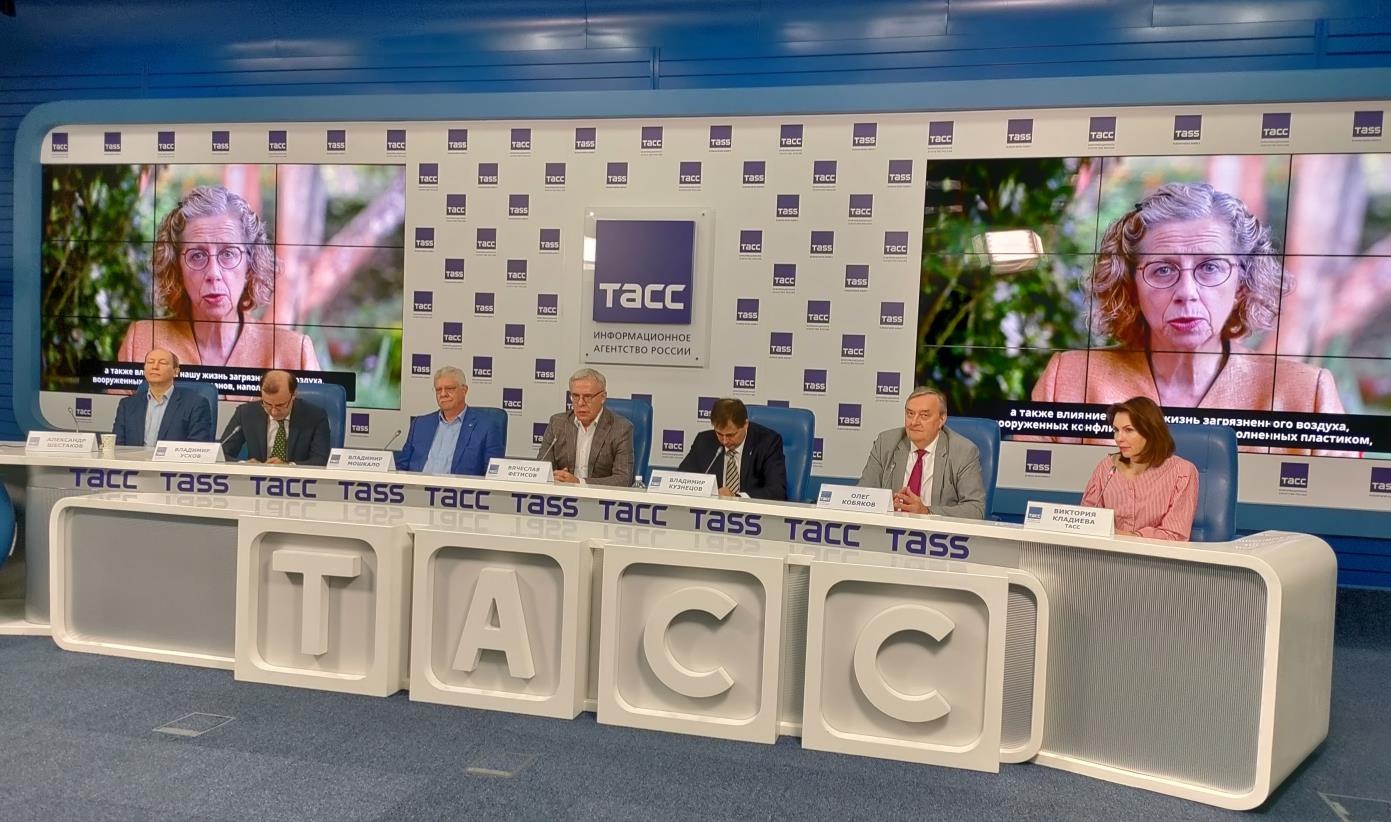World Environment Day: Earth, the one and only

Photo: ©FAO/Vladimir Mikheev
6 June 2022, Moscow, – “First of all, I would like to join in congratulating the colleagues from our sister organization, the United Nations Environment Programme (UNEP), on the fiftieth anniversary, as well as all Russians working in the environmental sector on the occasion of the World Environmental Day,” Oleg Kobiakov, Director of the FAO Liaison Office with the Russian Federation, said at the press conference dedicated to the World Environment Day held at the TASS News Agency platform.
“This year, ‘Only One Earth’ has been chosen as the theme of the World Environment Day, which is marked every year on 5 June,” the Director of the FAO Moscow Office continued. “This reminds us that the Earth belongs to everyone, to all its inhabitants, to young and old ones, to those living in villages and cities. There is a widely known idea that we have not inherited the Earth from our ancestors, but we have borrowed it from our descendants.
People have been farming for over 10 000 years. Since the moment humanity moved from gathering and hunting to cattle breeding and farming. All along, agriculture has been providing us not only with food, shelter and livelihood, but also with knowledge, tradition, innovation and ecosystem services. And now, despite all the scientific and technological advances, most of the food we consume is produced within the main natural environments. These are earth, water and air. This situation will not change – we have inherited it, and it will sustain in the future as well.
At the same time, many ecosystems are now under pressure that goes beyond their capabilities. Food security is the key element that will enable us to achieve the entire 2030 Agenda for Sustainable Development. Since the attainment of the second Sustainable Development Goal – ending hunger and ensuring food security – helps us achieve the third health-related objective, as well as make a breakthrough in meeting the first goal – eliminating poverty and extreme poverty.
If we do not conserve natural resources and do not take care of the environment, we will create a food-related threat and risks to agriculture. Since its very establishment, FAO has been at the forefront of supporting producers of food and other agricultural products while also caring for our planet. That is why FAO, together with the United Nations Environment Programme (UNEP), has been appointed by the UN Secretary-General as coordinator for the UN Decade on Ecosystem Restoration.
On this front, we at FAO are developing various codes of conduct, in particular on the responsible use of pesticides and fertilizers and the management of forests and fisheries, and voluntary guidelines on the responsible governance of tenure of land, fisheries and forests. We have worked on many environmental documents together with UNEP, in particular, on the Rotterdam Convention. Over the past year, we have introduced an environmental monitoring information system.
Environmental improvement is one of the key activities of FAO. Among them is the promotion of a sustainable circular bioeconomy. Elimination of plastic product pollution in farming. A recent study has shown that terrestrial ecosystems are probably much more polluted with plastics than aquatic ones, although plastics in the aquatic environment is the most discussed and the most exposed topic in the global media.
FAO estimates that restoring 350 million hectares of degraded land by 2030 will produce a significant climate impact in the context of the goals set by the Glasgow conference. In this way, we will receive USD 9 trillion by providing agricultural ecosystem services and will be able to remove an additional 13-26 gigatonnes of greenhouse gases from the atmosphere. It is common knowledge that agriculture is definitely one of the factors of climate warming.
The future of agri-food systems and the future of our environment are intertwined. In the Russian Federation, its vast areas in all natural spheres – land, water and air – have a decisive impact on environmental health. The time for transformation has come and may our joint work in this area bear fruitful results.
* * *
The press conference was also attended by Chairman of the Central Council of the All-Russian Society of Nature Conservation Vyacheslav Fetisov, Deputy Head of the Federal Service for Supervision of Natural Resources of the Russian Federation Amirkhan Amirkhanov, Head of the UN Environment Programme (UNEP) Office in the Russian Federation Vladimir Moshkalo, Director of the UN Information Centre in Moscow Vladimir Kuznetsov, Head of the Division for Multilateral Environmental Cooperation of the Department of International Organizations of the Ministry of Foreign Affairs (MFA) of the Russian Federation Vladimir Uskov and Director of the Science, Society and Sustainable Futures Division of the Secretariat of the UN Convention on Biological Diversity in 2018-2021 Alexander Shestakov.
